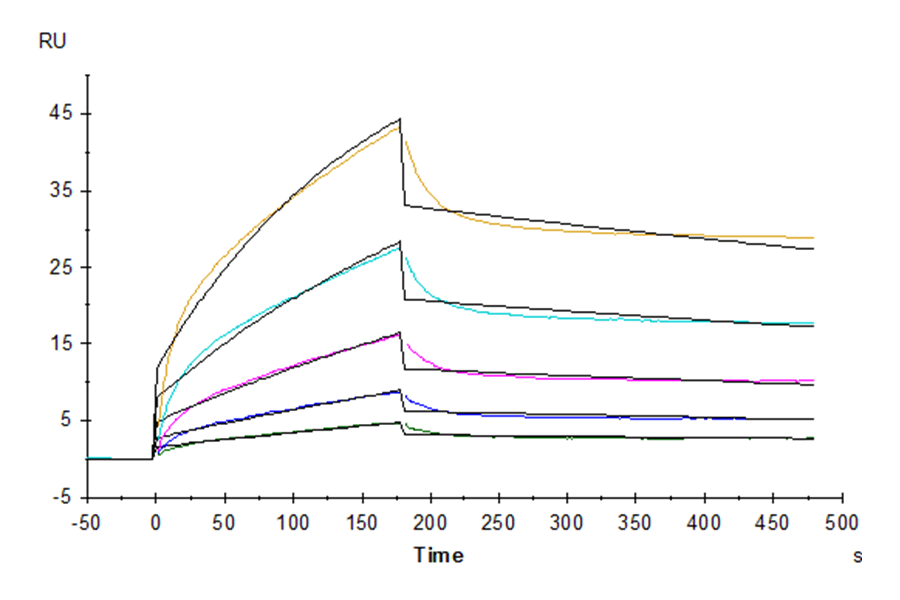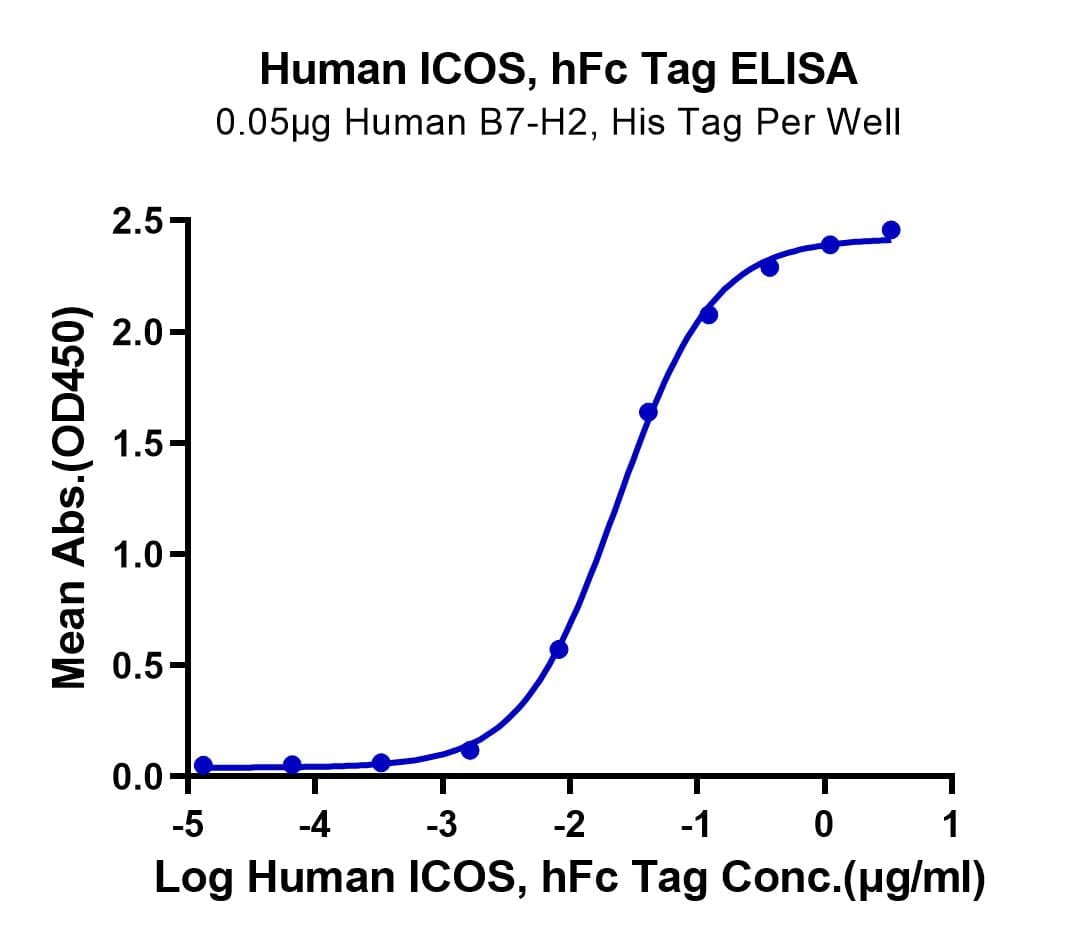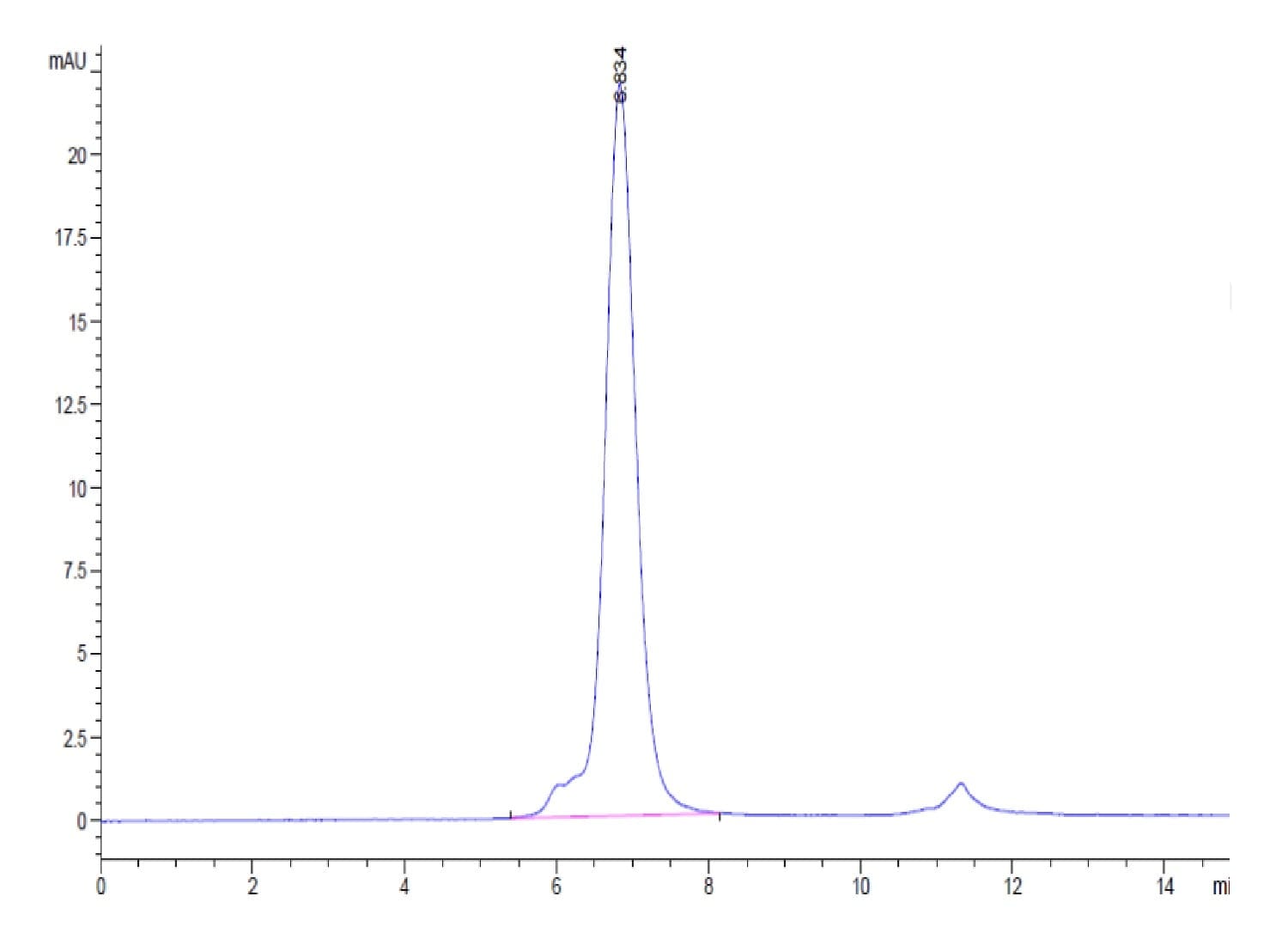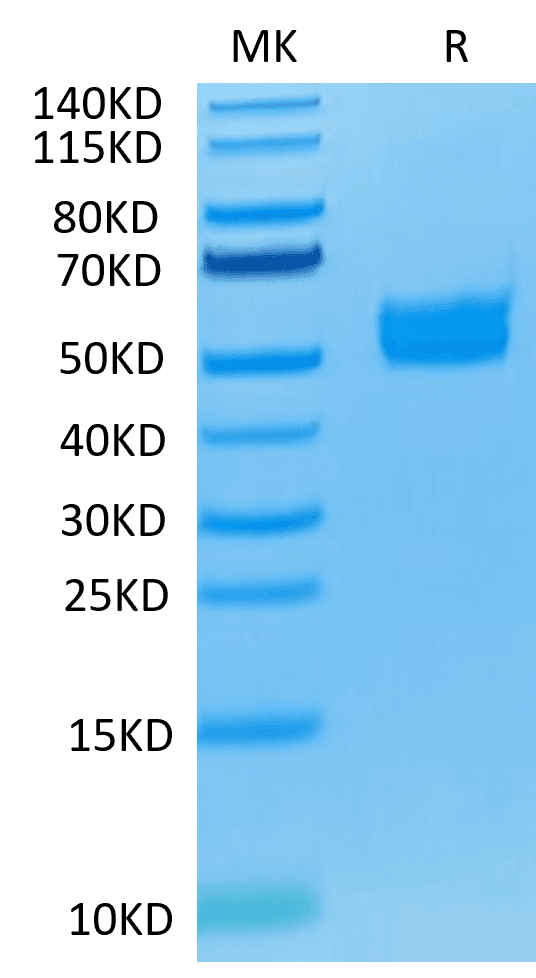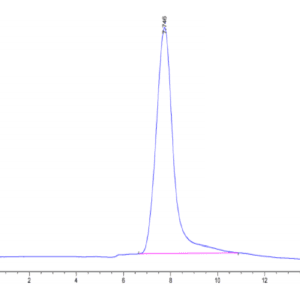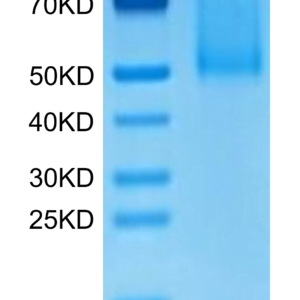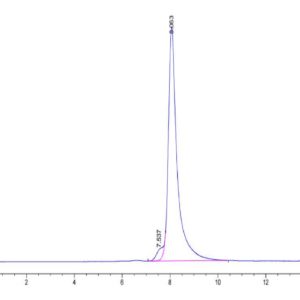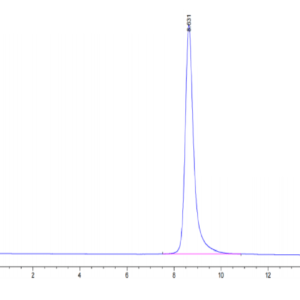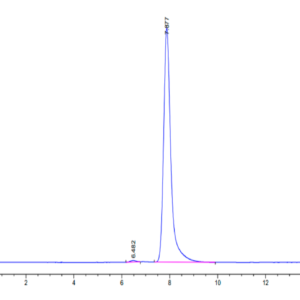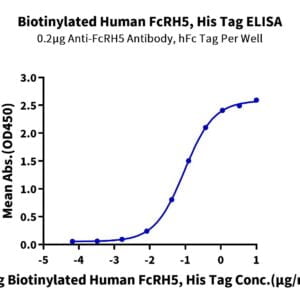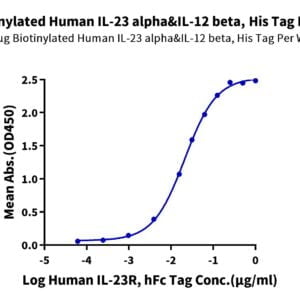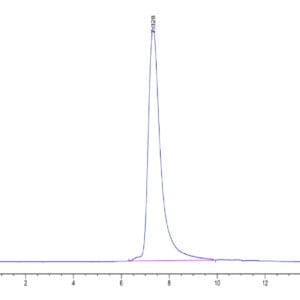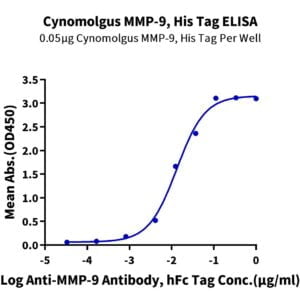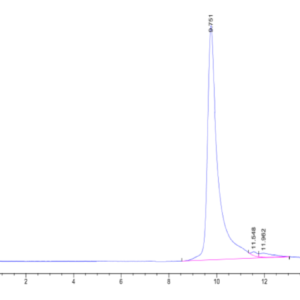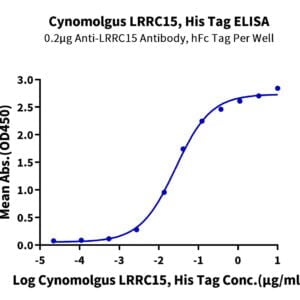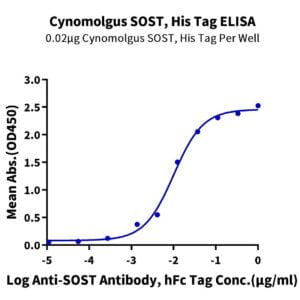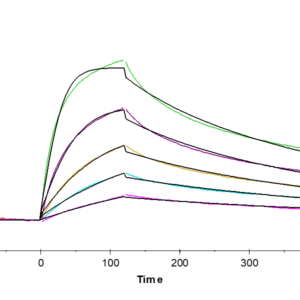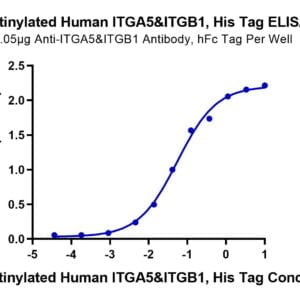| Weight | 1 lbs |
|---|---|
| Dimensions | 9 × 5 × 2 in |
| accession | Q9Y6W8 |
| express system | HEK293 |
| product tag | C-hFc |
| purity | > 95% as determined by Tris-Bis PAGE;> 95% as determined by HPLC |
| background | Inducible co-stimulator (ICOS), also called AILIM (activiation-inducible lymphocyte immunomediatory molecule) and CRP-1 (CD28-related protein-1), is a member of the growing CD28 family of immune costimulatory receptors. Other family members are CD28, CTLA-4 and PD-1. Human ICOS is a homodimeric type I transmembrane protein consisting of 199 amino acids (aa) with a putative 20 aa signal sequence, a 121 aa extracellular domain, a 23 aa transmembrane region, and a 35 aa cytoplasmic domain. |
| molecular weight | The protein has a predicted MW of 40.5 kDa. Due to glycosylation, the protein migrates to 52-60 kDa based on Tris-Bis PAGE result. |
| available size | 100 µg, 500 µg |
| endotoxin | Less than 1EU per μg by the LAL method. |
Human ICOS/CD278 Protein 4808
$315.00 – $1,050.00
Summary
- Expression: HEK293
- Functional: Yes (ELISA)
- Amino Acid Range: Glu21-Phe141
Human ICOS/CD278 Protein 4808
| protein |
|---|
| Size and concentration 100, 500µg and lyophilized |
| Form Lyophilized |
| Storage Instructions Valid for 12 months from date of receipt when stored at -80°C. Recommend to aliquot the protein into smaller quantities for optimal storage. Please minimize freeze-thaw cycles. |
| Storage buffer Shipped at ambient temperature. |
| Purity > 95% as determined by Tris-Bis PAGE |
| target relevance |
|---|
| Inducible co-stimulator (ICOS), also called AILIM (activiation-inducible lymphocyte immunomediatory molecule) and CRP-1 (CD28-related protein-1), is a member of the growing CD28 family of immune costimulatory receptors. Other family members are CD28, CTLA-4 and PD-1. Human ICOS is a homodimeric type I transmembrane protein consisting of 199 amino acids (aa) with a putative 20 aa signal sequence, a 121 aa extracellular domain, a 23 aa transmembrane region, and a 35 aa cytoplasmic domain. |
| Protein names Inducible T-cell costimulator (Activation-inducible lymphocyte immunomediatory molecule) (CD antigen CD278) |
| Gene names ICOS,ICOS AILIM |
| Mass 9606Da |
| Function Enhances all basic T-cell responses to a foreign antigen, namely proliferation, secretion of lymphokines, up-regulation of molecules that mediate cell-cell interaction, and effective help for antibody secretion by B-cells. Essential both for efficient interaction between T and B-cells and for normal antibody responses to T-cell dependent antigens. Does not up-regulate the production of interleukin-2, but superinduces the synthesis of interleukin-10. Prevents the apoptosis of pre-activated T-cells. Plays a critical role in CD40-mediated class switching of immunoglobin isotypes (By similarity). |
| Catalytic activity #N/A |
| Subellular location [Isoform 1]: Cell membrane ; Single-pass type I membrane protein .; [Isoform 2]: Secreted . |
| Tissues Activated T-cells. Highly expressed on tonsillar T-cells, which are closely associated with B-cells in the apical light zone of germinal centers, the site of terminal B-cell maturation. Expressed at lower levels in thymus, lung, lymph node and peripheral blood leukocytes. Expressed in the medulla of fetal and newborn thymus. |
| Structure Homodimer; disulfide-linked. |
| Post-translational modification N-glycosylated. |
| Target Relevance information above includes information from UniProt accession: Q9Y6W8 |
| The UniProt Consortium |
Data
Publications
Publications
| pmid | title | authors | citation |
|---|---|---|---|
| We haven't added any publications to our database yet. | |||
Protocols
| relevant to this product |
|---|
Documents
| # | ||
|---|---|---|
| Please enter your product and batch number here to retrieve product datasheet, SDS, and QC information. | ||
